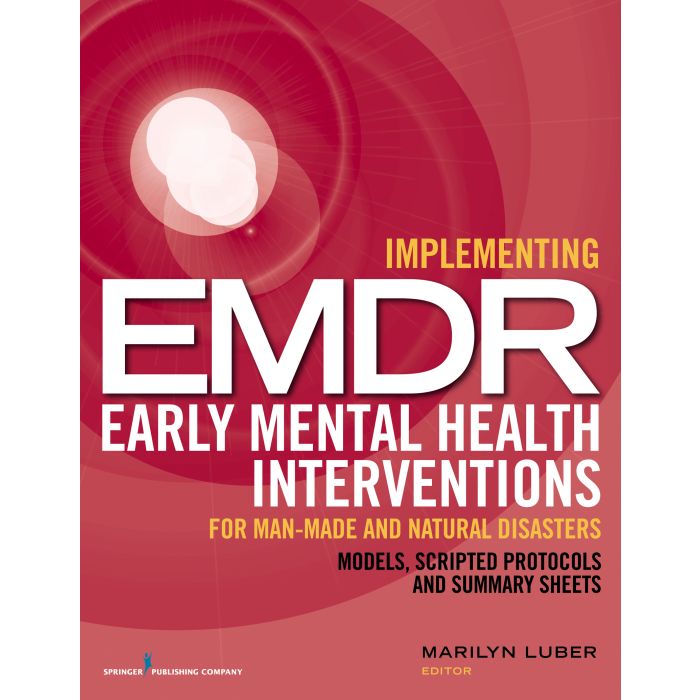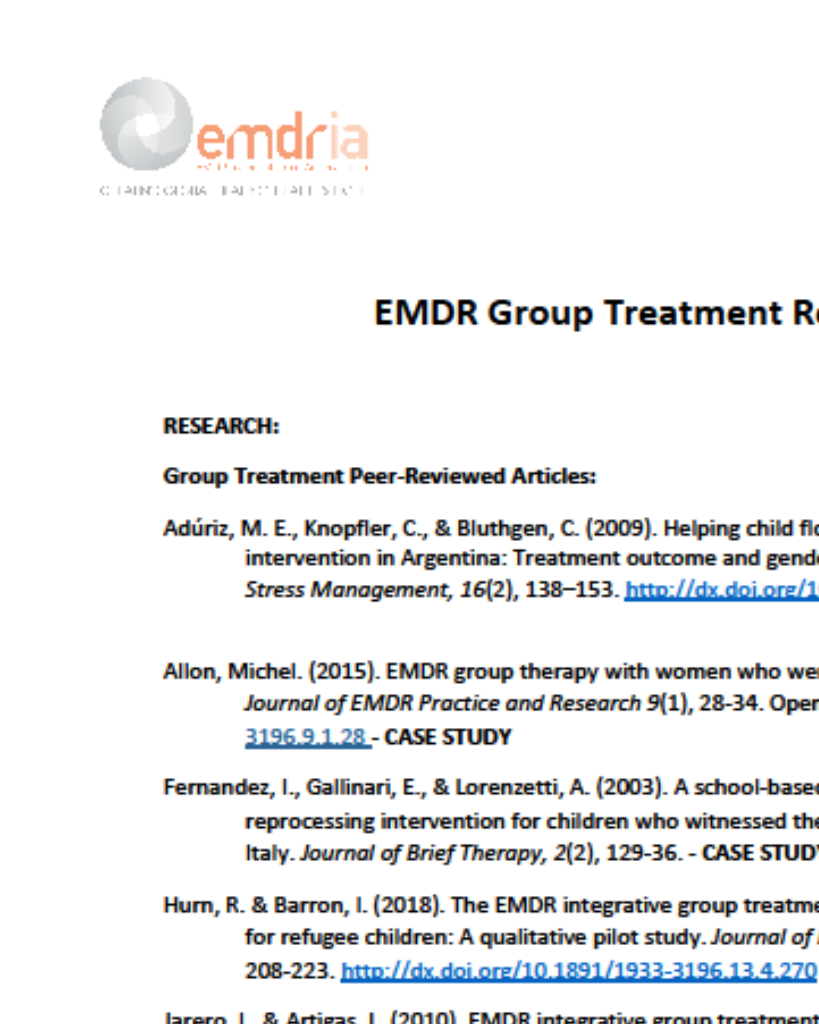Secondary traumatization in refugee care – EMDR intervention for interpreters (STEIN): A study protocol for a quasi-randomized controlled trial
This study is investigating the efficacy of an EMDR intervention in interpreters working in refugee care affected by secondary traumatic stress.
Article Abstract
“Background: By the end of 2022, more than 100 million people worldwide fled their homes. Before, during and after their flight, refugees have high risk of experiencing traumatic events. Accordingly, around every third refugee is affected by posttraumatic stress disorder. For adequate mental health care, the service of interpreters is often urgently needed to overcome existing language barriers. However, repeated exposure with details of traumatic narratives, as experienced by interpreters, can be burdensome and can lead to trauma sequela symptoms in terms of secondary traumatic stress. Only few studies have examined the treatment of secondary traumatic stress to date. Based on the recommendations for the treatment of posttraumatic stress disorder with confrontational methods, this study was designed to evaluate the effectiveness of an eye movement desensitization and reprocessing (EMDR) intervention in a sample of interpreters working in refugee care suffering from secondary traumatic stress symptoms.
Methods: To evaluate the effectiveness of an EMDR intervention for the treatment of secondary traumatic stress symptoms, a quasi-randomized controlled trial using a waiting group design will be performed. Participants will be treated with a maximum of 6 sessions based on EMDR standard protocol. Primary outcome is the symptom load of secondary traumatic stress, assessed with the Questionnaire for Secondary Traumatization, while secondary outcomes comprise further symptom complexes such as PTSD due to self-experienced traumatic events, depression, anxiety, and somatization as well as quality of life, quality of professional life, and psychological wellbeing that will be assessed with the PDS, PHQ-9, GAD-7, SSD-12, SF-12, PROQOL-5, and WHO-5, respectively.
Discussion: Our primary interest is to determine the efficacy of an EMDR intervention in interpreters affected by secondary traumatic stress, especially how many sessions are needed for significant symptom reduction. Change of associated symptom complexes and quality of life will be investigated. Reprocessing one’s own stressful experiences may also contribute to this, which is not the focus of the treatment but relevant to the EMDR protocol. This study aims to assess if EMDR could be an acceptable, effective, and time-efficient method for reducing work-related secondary traumatization.
Trial registration: German Clinical Trials Register, DRKS00032092, registered 16 June 2023.”
—Description from publisher
Article Access
Open Access
Rzepka, I., Kindermann, D., Friederich, H-C., & Nikendei, C. (2024). Secondary traumatization in refugee care – EMDR intervention for interpreters (STEIN): A study protocol for a quasi-randomized controlled trial. BMC Trials, 25: 643. Open access: https://doi.org/10.1186/s13063-024-08480-4
Date
October 1, 2024
Creator(s)
Irja Rzepka, David Kindermann, Hans-Christoph Friederich
Contributor(s)
Christoph Nikendei
Client Population
First Responders/Healthcare Workers, Immigrants/Refugees
Extent
10 pages
Publisher
BMC
Rights
© The Author(s) 2024. Open Access This article is licensed under a Creative Commons Attribution 4.0 International License, which permits use, sharing, adaptation, distribution and reproduction in any medium or format, as long as you give appropriate credit to the original author(s) and the source, provide a link to the Creative Commons licence, and indicate if changes were made.
APA Citation
Rzepka, I., Kindermann, D., Friederich, H-C., & Nikendei, C. (2024). Secondary traumatization in refugee care - EMDR intervention for interpreters (STEIN): A study protocol for a quasi-randomized controlled trial. BMC Trials, 25: 643. Open access: https://doi.org/10.1186/s13063-024-08480-4
Audience
EMDR Therapists, Other Mental Health Professionals
Language
English
Content Type
Article, Peer-Reviewed
Access Type
External Resource, Open Access





